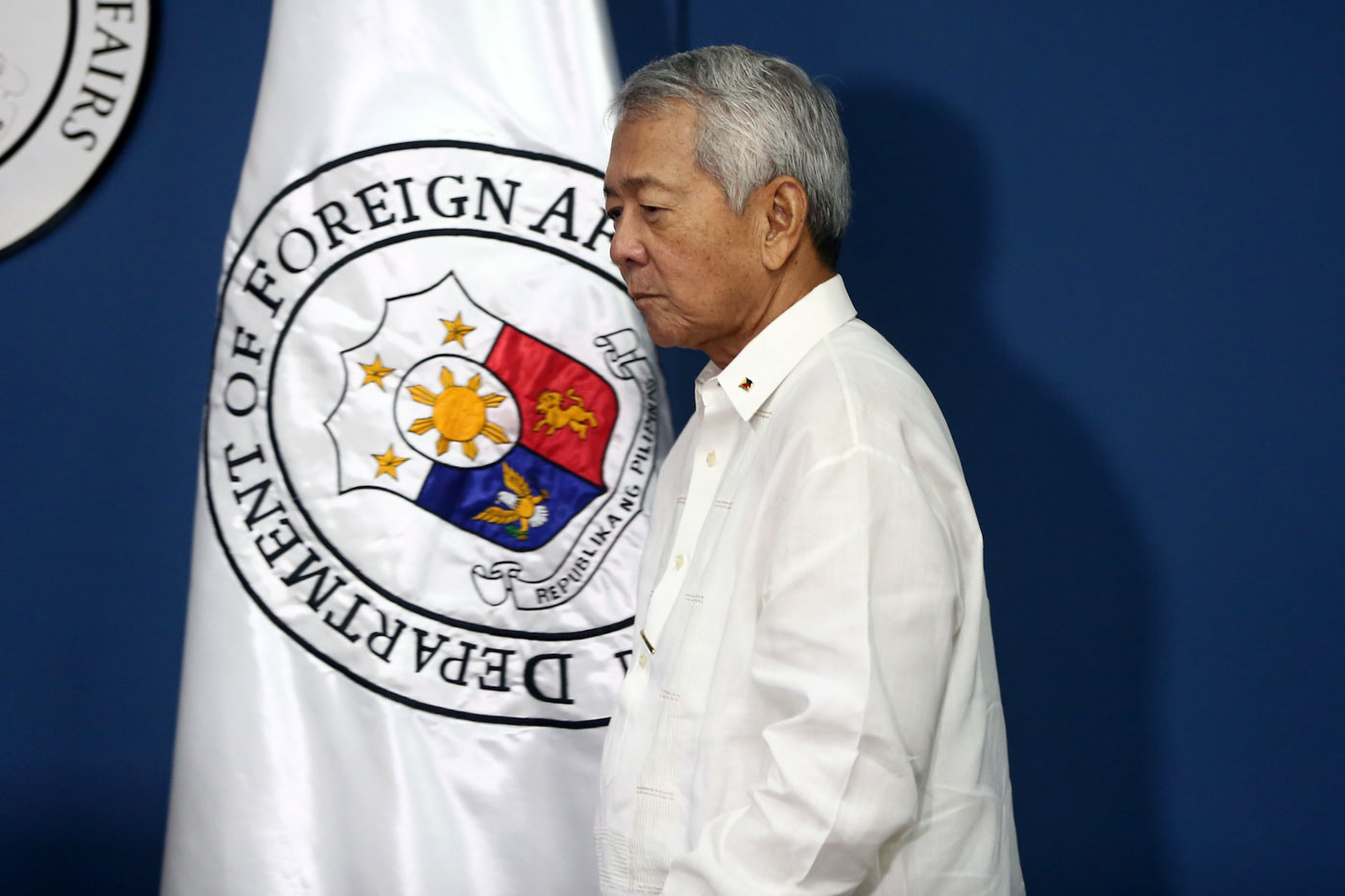The Philippine foreign secretary says the ASEAN statement that omits any mention of the Hague ruling favoring the Philippines' case against China' remains a 'resounding diplomatic triumph for the Philippines'

INTERNATIONAL CASE. Philippine Foreign Affairs secretary Perfecto Yasay delivers a brief statement on the award of the Arbitral Tribunal constituted by the UN Convention on the Law of the Sea on the disputed West Philippine Sea during a press conference at the DFA head office in Pasay City on Tuesday, July 12, 2016. Photo by Ben Nabong/Rappler
Philippine Foreign Secretary Perfecto Yasay Jr defended himself from criticism that he failed to assert the Philippines' legal victory in the South China Sea dispute during the recent Association of Southeast Asian Nations (ASEAN) meeting.
In a post on his Facebook account dated July 30, Yasay said that the joint communiqué crafted after the 49th ASEAN Ministerial Meeting (AMM) in Vientiane, Laos, did not weaken the Philippines' claim over the disputed South China Sea – even if it omitted any mention of the Hague ruling favoring the Philippines' case against China.
Yasay added that the ASEAN statement was a "resounding diplomatic triumph for the Philippines."
"The statement and joint communique that was delicately and laboriously crafted and issued – predicated upon ASEAN's centrality and solidarity in dealing with issues affecting common interests, peace and stability in the region – did not in any way, manner or form weaken the legal foundations of our claim and the award to the Philippines of its maritime entitlements as part of our EEZ by the arbitral tribunal," Yasay wrote.
"On the contrary, the statement and joint communique was a resounding diplomatic triumph for the Philippines because of the firmness and flexibility that we displayed at the AMM, which won the respect, acknowledgement, and admiration by all foreign ministers present," he added.
The Philippine foreign secretary was responding to criticism that he did not lobby strongly enough to include the ruling in the joint communiqué. Yasay himself had flip-flopped on the issue, claiming that he "vigorously" lobbied to cite the ruling, although an audio recording in Laos said that he "never did."
In his post, he singled out one of his critics, former Philippine ambassador to the United States Jose Cuisia Jr, whom he said had been critical of his competence and ability to lead the foreign affairs department even before his designation.
Responding to Cuisia's statements, Yasay pointed out that the united statement that had been "vigorously sought by my predecessors to no avail" was finally obtained "with much difficulty and disappointment after long and numerous diplomatic engagements that were oftentimes acerbic and heated."
He also said that the core message "implicitly but undeniably conveyed" by the ASEAN statement was to urge China to respect and uphold the rule of law.
He added that the statement "called for all parties to respect the ruling of the arbitral tribunal without using the hard line language demanded by my predecessors."

No comments:
Post a Comment
Note: Only a member of this blog may post a comment.